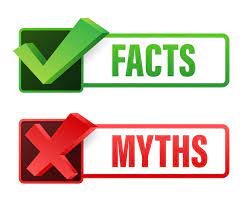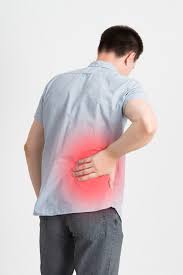Chronic kidney disease (CKD) means a long term impairment of kidney function, or abnormal structure (with normal GFR). There are a lot of myths and facts associated with CKD. Here goes.

Myth 1: Chronic kidney disease is a rare condition.
Fact 1. You may be surprised to learn just how common kidney disease is. A mild form is common, and affects 10% of the population. What puts you at risk? Having high blood pressure, diabetes, a family history of kidney failure, and being over 60 years are the major risk factors for kidney disease.
Fortunately, severe kidney disease (CKD5 or kidney failure, see below) is rare. In fact, only 1 in 100 people with CKD go to need dialysis or a kidney transplant – i.e. 1 in 1000 of the population. Hence every GP will have only two patients on dialysis or with a transplant on their books.
Myth 2: CKD makes you feel unwell. As I am all right, so I don’t think I have a kidney problem.
Fact 2. Unfortunately, most people who have kidney disease don’t know it. Why not? Because in the early stages of CKD (called CKD1 to CKD3), most people do not have any symptoms. It is a ‘silent disease’, like diabetes (in its early stages) and high blood pressure.
Symptoms may not appear until the more advanced stages (called CKD4 or CKD5). The only way to find out if you have kidney disease is to get tested, with a blood test (creatinine and GFR) – and once you are diagnosed, there are many steps you can take to reduce the progression of the disease.
Myth 3: CKD leads to kidney failure and dialysis.
Fact 3: No, in fact, only 1 in 100 people with CKD progress to end-stage renal failure (ERSF) and need dialysis or a kidney transplant.
For many CKD is a mild long-term disease that does not progress to kidney failure and the need for dialysis.
In those that do progress, individuals progress at very different rates; some very slowly (so never need dialysis) and some more rapidly (that do).
With early detection and appropriate management, many people can live with CKD for many years without progressing to kidney failure.
Myth 4: Drinking a lot of water is ‘good’ for the kidneys (especially in CKD).
Fact 4. Drinking lots of water might seem like a good idea, and of course it is important to get enough fluid into your body.
But it does not ‘flush out the kidneys’. And for many patients with CKD, too much fluid intake can actually cause ‘oedema’ (swelling, especially around the ankles), as well as high blood pressure and cause breathing problems.
In fact, therefore, many CKD patients are, in fact, asked to restrict their fluids to say 2 litres, 1.5L or even 1L per day. If you have CKD, you should talk to your doctor, nurse or dietitian about the correct, healthy fluid intake for you.
Myth 5. I have back pain so it must be my kidneys (as kidney problems cause back pain).
Fact 5. Kidney disease rarely causes back pain. It is usually a spinal or muscle problem.
Pain in the back occasionally comes from kidney disease if you have a kidney stone, urinary tract infection (UTI) or blockage in one or both kidneys. Other forms of kidney disease rarely cause pain in the back.

Site of kidney pain – a rare cause of back pain.
Myth 6: CKD only affects older people.
Fact 7: CKD can affect people of all ages, though children and young adults are rarely affected.
But it is true that the risk of CKD increases with age; which may be linked to other conditions like diabetes, high blood pressure, and genetic predisposition. The peak age for starting dialysis is 65 years.
Myth 7: CKD is a serious condition.
Fact 7: Not always true. See Myth 3. Most people have ‘mild CKD’ (i.e. CKD1-3), which can be considered ‘risk factors’ for CKD rather than a disease themselves.
However for some CKD is a serious and progressive condition; and, if left untreated, can lead to kidney failure (CKD5). It also increases the risk of heart disease, stroke, and other health complications.
Myth 8: You cannot prevent CKD.
Fact 8: Yes, you can. Many cases of CKD are preventable or manageable through lifestyle changes. Managing underlying conditions like diabetes and high blood pressure, staying fit and having a healthy diet, and avoiding excessive use of certain medications, can reduce the risk of CKD.
Myth 9: Dialysis is the only treatment for CKD.
Fact 10: Dialysis is a treatment option for the small number of patients with advanced CKD or kidney failure, but there are other treatments available for earlier stages of CKD. Medication, dietary changes, and lifestyle modifications can slow the progression of the disease and manage symptoms.
Myth 10: Kidney disease is not related to other medical conditions.
Fact 10: Not true. CKD is often linked to other health conditions, like diabetes, high blood pressure, ischaemic heart disease (IHD) and chronic heart failure (CHF). Managing these conditions can help prevent or slow the progression of kidney disease.
Myth. “I don’t have any trouble passing urine so my kidneys must be fine”
Fact. Also, not true. Most patients on dialysis make urine. Damaged kidneys will continue to make urine, even if they no longer clean your blood properly – i.e. it is poor quality urine.
We have described 10 CKD myths and 10 CKD facts. We hope it has been helpful.